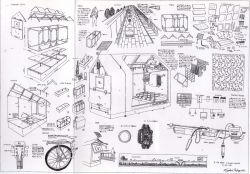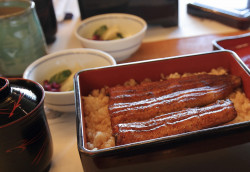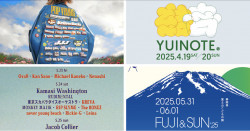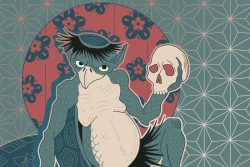
August 28, 2008
Sign of the Times
Say goodbye to “High Touch Town.” Roppongi is about to get a new Logo to go along with its new image
By Metropolis
A notorious gangster’s former playpen sits empty

(Courtesy of Brett Bull)
Over the past few years, Japanese blogs and bulletin boards—the notorious Ni-chan, for example—have been abuzz over the plight of Roppongi’s TSK.CCC building, a once-opulent complex built in 1973 by Korean gangster Hisayuki Machii. Today, the site comprises a 3,800m2 vacant lot—a condition that likely will not change for some time.
Problems for the building, which was home to dance spot Vanilla and the cabaret One Eyed Jack’s, started when most of the structure was taken over by creditors after Machii’s death in 2002. “The property rights then became extremely complicated,” says Yuzuru Goto, administrative director of the Roppongi Shopkeepers Promotion Association. Inconsistencies in the original building registration, as well as ownership claims to small sections within the complex by other parties, created a tumultuous situation.
Machii, who was known as the “Ginza Tiger,” made his fortune in the real estate and ferry businesses. He formed the company Toa Sogo Kigyo (TSK) as a front for the Tosei-kai, a yakuza gang that dominated Tokyo’s glitzy Ginza district in the early ’60s.
The multi-floored “Celebrity Choice Club” (CCC) became a stronghold for Machii and his associate, Yoshio Kodama, a legendary underworld figure and Class-A war criminal. Attending the club’s opening party were politicians, corporate bigwigs and sports stars—it was, indeed, the Roppongi Hills of its time.
Bestselling author Robert Whiting depicts Machii in his 2000 book Tokyo Underworld, a chronicle of organized crime in postwar Japan. After the book’s publication, Machii wrote to Whiting to voice his displeasure at being labeled a gangster when in fact Machii viewed himself as a patriot.
Whiting agrees with this assertion but emphasizes that the mobster tag was also appropriate. “I knew from a former Honolulu police officer that he carried a letter from MacArthur thanking him for fighting the communists in Japan during the immediate postwar era,” Whiting says. “But the other part was true as well. I had police records and other documents that demonstrated that. We were all going to have a meeting—Machii, his son, his mother, his secretary—to discuss the matter, if my safety could be guaranteed. But in the middle of negotiations about how and when and where to meet, his wife became ill. That delayed things. Then Machii died, so that was the end of that.”
But a new chapter was only beginning. Land prices in the central wards of Tokyo have since ballooned, and the TSK site has been referred to as “sweet nectar” by the media.
In 2006, a company called Toshi Urban Kaihatsu bought most of the building from its creditors at an auction for ¥25.2 billion. The remaining pieces of the structure were slowly acquired thereafter, and the building has since been demolished (above). Since news reports have indicated that Toshi Urban Kaihatsu is funded overseas and operating out of a one-room Tokyo apartment, concerns have been raised about the firm’s credibility and motives.
Goto believes that the gangster tag attached to the property will make it tough to sell in the near term. “I hope that a large developer will enter the picture and snap it up,” he says. “Only then will the problem go away.”







